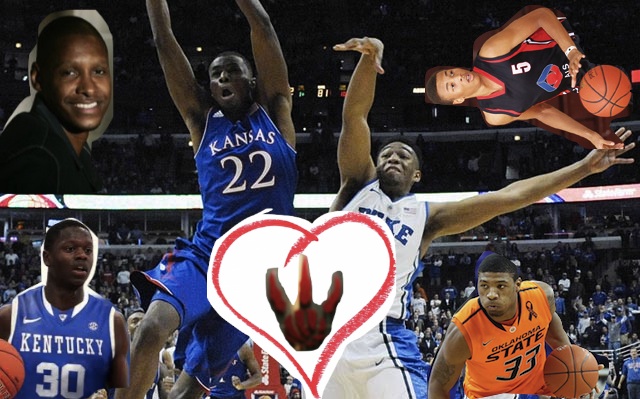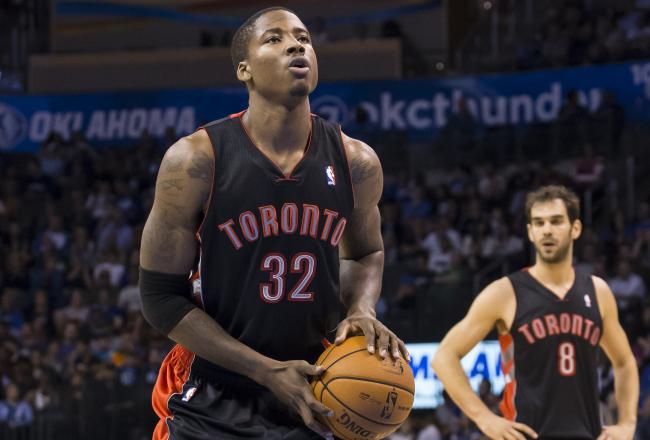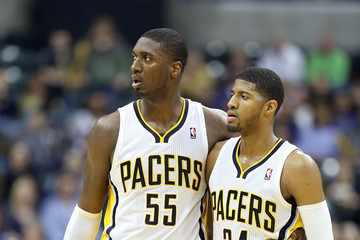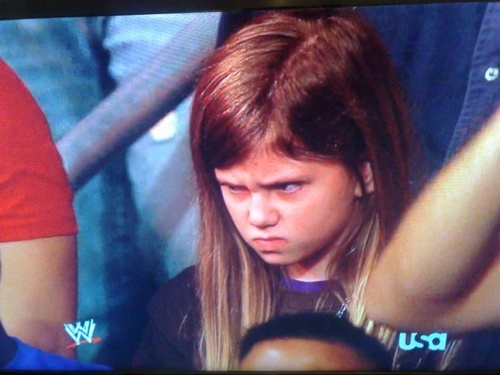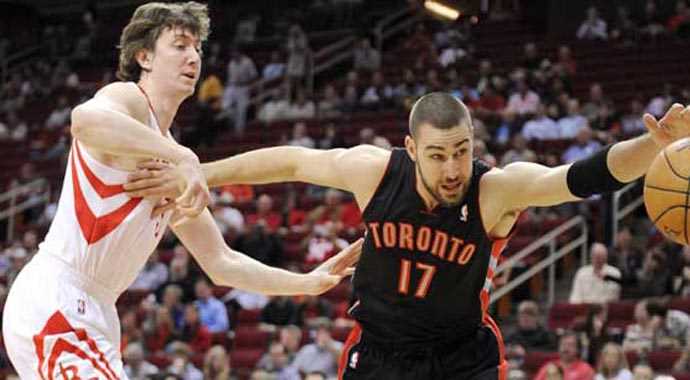After Tuesday night’s college basketball games, the basketball world’s focus on tanking seems to have somehow increased. Fans have now seen, firsthand, the highly-touted prospects some teams are intentionally losing to get their hands on.
They’re really good.
Of course, we don’t have nearly enough information yet to judge them accurately, choose between them or project what they’ll become as professional players. The former two items are fluid in even the most expert of minds, while the latter is largely impossible to nail down consistently.
However, those games were played, the articles were written, and anchors on players, fits and pro- or anti-tanking stances dug in.
You’re now very likely a member of one of the following:
Riggin’ for Wiggins
Tank Safari/Hari Kari for Jabari
Scandal for Randle
Smrt for Smart
Or possibly even ‘Become a Corpse to get Exum’d’
And fine, go for it. You’re not alone. Many people have been beating the tanking drum in recent days, including prominent national writers Bruce Arthur and Cathal Kelly (and Eric Koreen has made note of the option several times, too). The virtues of tanking have no doubt been preached to you, the willing and eager Tank Nation Congregation.
Now, having said that, I’m on record as having been against tanking before the season, a stance I’ve softened on a bit in recent months. I still have some concerns, and I feel like those are concerns all pro-tanking people should be aware of.
So, here are a few reminders about the realities of tanking:
Put away the Trade Machine.
Seriously, I’ve already seen some ridiculous trade proposals involving the Raptors. This is true of all fan bases, and it makes me believe that, while fun, the Trade Machine is a net-negative for basketball.
There is a 99 percent chance any trade scenario you concoct for the Raptors is one the other team’s fan base would scoff at. You can make almost anything happen with the Trade Machine, that doesn’t mean it’s reasonable:
“Raptors could also throw in the 2016 first from the Knicks to one team and a second to the other teams.”
Seriously, none are this bad, but you should probably run any wild trade ideas by a non-Raptors fan as a sanity check first.
The Raptors aren’t acquiring another lottery pick.
In other words, no trade can push the team’s odds of getting the number one pick higher than 25 percent (the chances the league’s worst team has at the top pick).
The reasons here are simple:
*A team with a lottery pick likely sees enormous value in that lottery pick.
*The Raptors don’t have many assets worth a first round pick.
*Any team acquiring Raptors are likely to be good and thus, not lottery teams.
The Charlotte Bobcats may have made a splash by signing Al Jefferson, but it’s still pretty unlikely they would deal their first (which they technically can’t trade until after the draft, anyway,) or Detroit’s first (top-eight protected). Likewise, Cleveland probably isn’t trading theirs or Sacramento’s (top-12 protected).
In short, nobody on the Raptors is worth a lottery pick in this loaded draft class (and one that comes with a controlled salary for four years, don’t forget). Other teams are also aware that this is a pretty good draft, and other teams are also aware of what the Raptors assets are worth (give or take).
Thus, any trade of capable players only improves the “tank” by making the team worse, and possibly adding a lower-tier prospect. It’s not nothing, but you’re not getting a second pick in this lottery.
The Raptors were probably the high-bidder for Rudy Gay last year.
That means you can set your upper limit for any Gay trade at what the Raptors gave up (Ed Davis, Jose Calderon and a 2nd) or, alternatively, what Memphis received (Tayshaun Prince, Ed Davis and a 2nd). If teams had a higher willingness to pay for Gay, then Memphis would have taken their offers.
Of course, two things have happened since Gay came to Toronto:
*A year came off his contract, making him a potentially-expiring contract (and at the most, a two-year commitment).
*Gay has been hammered in the media, both at the time of the trade and with his poor start to the season.
Whether those things balance out, or in concert with a changing league landscape they’ve somehow changed his value, a reasonable return expectation for Gay is a non-elite prospect, an expiring contract and a second round pick. Any more, and it’s Masai Ujiri magic, any less and, well, it’s the cost of a failed move, I suppose.
The Raptors probably won’t take on long-term salary.
Why would you, unless it’s for a player of value? Some have mentioned Derrick Williams in some trade iterations (he’s due $6M next year), but Ujiri is likely to be careful with how he allocates future payroll, especially if Gay is dealt.
Consider that if Gay is dealt and only Amir Johnson has his non-guaranteed salary picked up, the Raptors have just $33M in salary committed for 2014-15. That provides a lot of flexibility moving forward.
In short, there has to be a really compelling case for taking on future commitments. It’s not impossible, but it seems unlikely unless it’s a home run deal or it’s just a player’s final year on his rookie contract (like Davis and, yes, Williams).
Tanking guarantees nothing.
This is the main reason I’ve been anti-tanking in the past (though again, I’ve softened a bit).
*The worst team in the league has a 25 percent chance at the top pick and a 64 percent chance at a top-three pick. Those are favorable odds but not a guarantee. This draft is deep, though, so you can be hopeful beyond the top pick.
*The Raptors probably won’t be the worst team. While tanking teams have started off stronger than expected, there’s going to be a lot of competition at the bottom of the standings. Say the Raptors finish fifth-last – that gives them an 8.8 percent chance at the top pick, a 29.2 percent chance at a top-three pick and a 55.3 percent chance of a top-five pick. The eighth worst record (Terrence Ross!), just a 2.8 percent chance at top pick and a 10 percent chance at top-three (and top-five).
*One good draft pick probably doesn’t turn the franchise around on his own. The Raptors had a really high pick in a really stacked draft class before, too, and while good, Chris Bosh didn’t lead to any consistent or appreciable success for the Raptors. In fact, the vaunted 2003 draft class had four huge stars in it, and only one (Dwyane Wade, paired with Shaquille O’Neal) won a ring for the team that picked him.
The so-called “Thunder model” requires multiple years of being bad, smart cap management, a little luck in the draft (both to have players slide and to select the right players) and still guarantees nothing.
Yes, adding a superstar draft pick would make the team much more watchable and probably better, but the argument of “tanking is the only way to eventually win a championship” is overly simplified.
Compare Utah and Indiana, for example.
Utah has a pair of number three picks (Derrick Favors and Enes Kanter), two number nine picks (Gordon Hayward and Trey Burke, whom we can’t judge yet) and another lottery pick in Alec Burks. And they’re now tanking for a star to go with all those good players because a few high picks probably isn’t enough unless you absolutely nail them.
Indiana, meanwhile, is led by Paul George (10th) and Roy Hibbert (17th, acquired via Toronto, hooray!), while supplemented by Lance Stephenson (second round), George Hill (acquired for the 15th pick), David West (free agent) and eventually, Danny Granger (17th). George is the only lottery pick on the entire roster, and Indiana finished with the leagues’ 10th-worst record that year.
And of course, the Heat used one lottery pick (Wade) to attract two more in free agency (Bosh, LeBron James), and have failed lottery picks on the periphery (Michael Beasley, Greg Oden).
Now, that’s not to say Utah can’t be good or Indiana’s player development system is replicable or Toronto could ever attract multiple stars, but it shows that a) a lot of high draft picks don’t guarantee anything, and b) it’s not the only path to success.
It’s going to make for a really long year.
This is another of my main anti-tanking points, in that I don’t want to watch and cover terrible basketball for an entire year again. It felt that way in 2010-11 and 2011-12 and bore no fruit, and I’m not looking forward to writing weekly Tank Rank and “Odds of Certain Lottery Odds” posts.
You might be able to stomach it for a non-certain chance at being better (granted, it’s also a non-zero chance, which is what the team has in its current incarnation), and good for you. I’ll grin and bear it, if it comes to that.
But please, while you abjectly root for the team you cheer for to lose, keep these things in mind.

